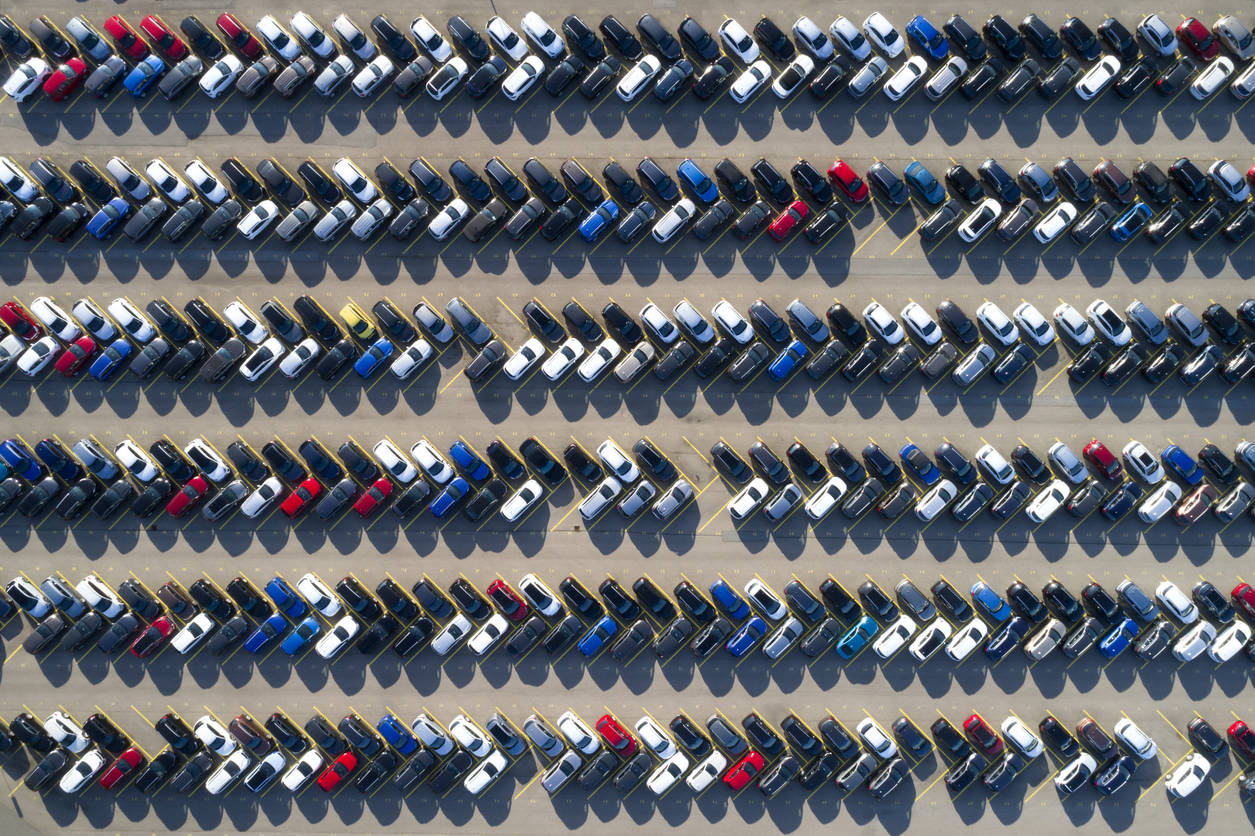
New Delhi: While global chip shortage remains a challenge in the automobile industry, opening up of COVID-induced lockdowns and subsequent easing of restrictions have helped the automakers to streamline their production schedules during July 2021. This was coupled with the preference of personal mobility, pent-up demand and the excitement of new launches, which together revved up the automobile wholesales for the month on a lower base of last year.
From the second half of June itself, auto manufacturers began to start production in all the three shifts. However, most passenger vehicle OEMs utilised July to clear the backlog and pending orders and focused on pushing up of stocks at dealerships for the festive season beginning August (with Onam), which accounts for 40% of the overall annual sales.
While hopes of a good monsoon season and the sequential increase in the month-on-month sales for every segment has been brewing hope for the otherwise stressed automotive industry, the companies note that the fear of COVID third wave still looms large and the supply constraints because of semiconductor shortage are bound to result in waiting periods. Moreover, the industry has a long way to go before it reaches sustained recovery.
The following is a segment-wise analysis of vehicle sales in July 2021.
Passenger vehicles
Market leader Maruti Suzuki India Limited (MSIL) witnessed a growth of 50% in its total sales (domestic + exports) at 1,62,462 units in July as against 1,08,064 units in July last year.
Sales of mini cars comprising Alto and WagonR stood at 19,685 units while the sales of the compact segment, including models such as Swift, Celerio, Ignis, Baleno and Dzire, rose to 70,268 units. Mid-sized sedan Ciaz sold 1,450 units in the month under review.
Sales of utility vehicles, including Vitara Brezza, S-Cross and Ertiga, stood at 32,272 units last month as compared to 19,177 in the year-ago month, MSIL said.
The country’s second largest carmaker Hyundai Motor India highlighted that its latest model Alcazar has contributed to its growth in July.
Tarun Garg, director (sales, marketing and service), Hyundai, said, “A positive growth momentum is clearly visible in the passenger vehicle industry with the stabilisation of macro-economic factors, good monsoons and increase in consumer shift towards personal mobility.”
| Domestic Sales | July 2021 | July 2020 | % Change |
| Maruti Suzuki | 1,33,732 | 97,768 | 37 |
| Hyundai | 48,042 | 38,200 | 26 |
| Tata Motors | 30,185 | 15,012 | 101 |
| Mahindra & Mahindra | 21,046 | 11,025 | 91 |
| Kia Motors | |||
| Toyota | 13,105 | 5,386 | 143 |
| Honda Cars | 6,055 | 5,383 | 12 |
| Nissan | 4,259 | 784 | 443 |
| MG Motor | 4,225 | 2,105 | 100 |
| Skoda Auto | 3,080 | 922 | 234 |
Recently, Tata Motors said that it is looking at various measures, including direct buying from stockists and making changes in the product configurations, to offset the impact of semiconductor shortage on its production activities and sales.
The company, which sells models including Nexon, Harrier and Safari in the domestic market, also said that it is looking at different kinds of chips which could be used in components where the supply situation is severe. It expects the situation to remain challenging in the ongoing quarter and some improvement in supplies only in the second half of the fiscal.
“We achieved our production ramp-up from the last week of July and have streamlined supplies in line with market activity. Barring a few locations, dealer outlets were mostly operational last month, albeit with lesser capacity,” Rajesh Goel, senior vice-president and director (marketing & sales), Honda Cars, said, and added that he expects the upcoming festive period to help the industry maintain this momentum.
Nissan, which got back to the game with its Magnite SUV, said that it has achieved its highest sales in the past three years during July.
According to Toyota, the surge in demand cannot be attributed to pent-up demand alone, but also to the fact that there is a clear sign of positive momentum in the market. “Having said that, some parts of the country are still under restrictions and once these restrictions are eased, the company expects that it will further aid demand as well as sales”, it added.
Meanwhile, most automobile companies including MSIL, Tata Motors, Toyota are increasing prices as raw material costs continue to soar because of the relentless surge in steel and precious metal rates.
Two-wheelers
The country’s largest two wheeler maker Hero MotoCorp which reported a degrowth in domestic sales as against last year when India’s hinterland led the recovery in the sector, said that most of the retail touchpoints of the company are operational across the country, although localised lockdowns imposed by certain states in the wake of sporadic Coronavirus cases continue to restrict the customer movement.
India’s rural economy and semi-urban market is expected to bounce back on the hopes of good monsoon and customers’ preference for personal mobility, it added.
| Domestic Sales | July 2021 | July 2020 | % Change |
| Hero MotoCorp | 4,29,208 | 5,12,541 | -16 |
| HMSI | |||
| TVS Motor | 1,75,169 | 1,89,647 | -8 |
| Bajaj Auto | 1,56,232 | 1,52,474 | 2 |
| Royal Enfield | 39,290 | 37,925 | 4 |
Bajaj Auto, whose strength majorly lies in its exports, reported total (domestic + exports) motorcycle sales at 330,569 in July 2021, marking a growth of 39% as against the same period last year.
The demand has been comparatively slow for the two-wheeler segment post the second wave, owing to the rise in fuel prices and the deeper and wider penetration of the infection which dented the private savings and investments of the consumers.
Commercial vehicles
The trucking industry, which is a leading economic indicator, is seeing gradual recovery, albeit on a low base.
Auto major Tata Motors reported 5,416 units for M&HCV, 3,357 units for I&LCV, followed by 825 and 12,198 units in Passenger Carriers and SCV cargo and pickup segment.
| Domestic Sales | July 2021 | July 2020 | % Change |
| Tata Motors | 21,796 | 12,012 | 81 |
| Mahindra & Mahindra | 19814 | 13,186 | 50 |
| Bajaj Auto | 11,041 | 6,502 | 70 |
| Ashok Leyland | 8,129 | 4,283 | 90 |
| VECV | 3,553 | 1,734 | 105 |
Ashok Leyland’s medium and heavy commercial vehicles (M&HCV) sales in the domestic market were at 3,473 units last month as compared to 1,500 units in July 2020. Light commercial vehicle sales in the domestic market last month stood at 4,656 units as against 2,783 units in the same month last year.
Tractors
Hemant Sikka, president – farm equipment sector, Mahindra & Mahindra, said, “Demand remained buoyant in July as crop sowing operations gained traction with monsoon picking up pace across all the regions. Easing of Covid curbs and robust farm incomes on account of record Rabi crop procurement has bode well for the rural economy.”
Sikka added, “We continue to stay bullish on tractor demand in the coming months owing to revival of monsoon, hike in MSP of key Kharif crops & upcoming festival season”.
| Domestic Sales | July 2021 | July 2020 | % Change |
| Mahindra & Mahindra | 25,769 | 24,463 | 5 |
| Sonalika | |||
| Escorts |
(This is a developing story. We will keep updating as the OEMs release their sales data.)
Read More:














